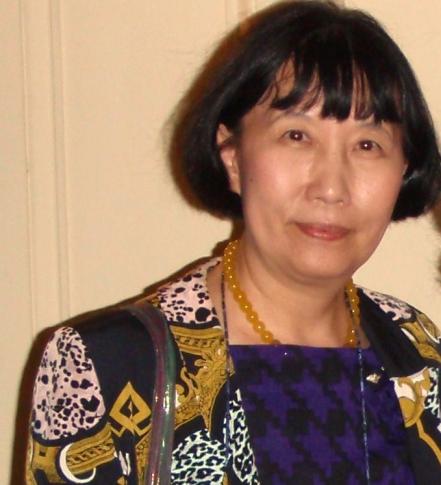Latest News
An Interview with Poet Mariko Sumikura

However, it is clear that Japanese literature has traditionally embraced insistence on “decisiveness,” “beauty,” “extinction,” and so on.
By Bujar Plloshtani
What do you think about poetry, and what motives do you use in your poems?
Mariko Sumikura:The motive I use in my poems is “Kyotoise,” Kyoto women. I have expressed the “ultimate form of love” in 1,000 lines of poetry in 200 five-line poems. I’m hoping to write my poems as clear as possible to make them understandable to the readers.
You were reading poetry organizer of “Eastern and Western Poets in Sympathy" at the Kyoto City International Foundation. With what success Poetic closed bridge "Ama-Hashi " in Japan?
Mariko Sumikura:I have organized “Eastern and Western Poets in Sympathy” twice so far. I am hoping to hold the event at least once a year and to continue it in the future as well. Indeed, I have published an internatinoal poetry e-journal “Poetic bridge ‘AMA-HASHI’” in Japan. For this work, I invited globally well-known poets as guests. It also offers opportunities for members to publish their poems; for the local readers, we attach a Japanese translation of the poems.
How much impact has poetry and translation on each-other?
Mariko Sumikura: Since I am a poet, I don’t want to provide word-by-word translations, but I’m trying to add something valuable as a piece of poetry. I believe this is how you can sharpen my linguistic sense and this will be reflected in my poetic works as well.
Your poetry is presented in many international poetry festivals. How much are you satisfied?
Mariko Sumikura:No matter which country they are from, poets can naturally understand each other because we share the same background of inner world. Although we come from different places and use different languages, I believe we all belong to the same “race” in the sense that we use the same language called “poetic philosophy.” I think the festivals are wonderful because they bring us precious opportunities to meet, to forge close ties, and to understand each other after the events.
What works have influenced the fame and maturity of your poetic presentations?
Mariko Sumikura:Personally, I am lucky to have been given several offers to publish my poems in anthologies of world poets, and indeed, some of my poems have been placed in two books, one in America and the other in France. In addition, as a member of the Japan Universal Poets Association, I have received offers from China and Slovakia to organize exchange events for our poets.
What do you think about the Japanese literature in the context of the European literature?
Mariko Sumikura: Modern Japanese literature has been greatly influenced by European literature. The same can be said about the trend of literary thoughts. I think the two literatures share the same phenomenon that “spirit” is sublimated following the conflicts between the “logical mind” and the “sensitive mind” and settles as words. However, it is clear that Japanese literature has traditionally embraced insistence on “decisiveness,” “beauty,” “extinction,” and so on.
What can we as readers may expect in the near future by Mariko Sumikura and what are Mariko Sumikura’s ambitions and plans?
Mariko Sumikura:My next work is titled “Poems Uncanged for One Thousand Years: ‘Love of the Manyo, Love of the Heian.’” The work is dedicated to great woman poets who left excellent poems “Shikishi naishinno and Sano no Otogami no musume”, tracing their tragic but beautiful love.This is a collection of narrative poetry, in which a tragic love of one thousand years ago is fulfilled in this present world. Each independent poem constitutes a dramatic story in itsef.
What is your opinion on the role of media in literature?
Mariko Sumikura: A human can only live once, but we can simulate other people’s lives and inner selves through the world of literature or theatrical performances. This is why literature exists as if it were assimilating human lives. A group of novelists is like a jumble of wheat and tares. It is one of the media’s responsibilities to select with keen eyes and polish them with a warm heart. In addition, I believe that persistent efforts of libraries and literary organizations, although these do not belong to media, can also play an important role in the success and the development of literature.
Rate this article




 del.icio.us
del.icio.us Digg
Digg

Post your comment